Genevieve Retzlaff, founder and CEO of Grow Better Together, shares her vision for leadership as an ongoing journey that has 3 distinct phases and starts with self-awareness. By understanding our triggers and developing emotional intelligence, we can create a foundation for growth that empowers teams and organizations. Genevieve emphasizes the importance of building trust, fostering psychological safety, and embracing diversity to inspire collaboration and innovation. Her approach encourages us to lead with intention, adapt to challenges, and prepare our teams for long-term success.
Highlights
- Start with Self-Awareness: Discover how self-reflection and emotional intelligence are the foundation of strong leadership.
- Foster Psychological Safety: Learn how to create spaces where team members feel safe to share ideas and take risks.
- Embrace Vulnerability: Explore how openness and honest communication can build stronger, more connected teams.
- Diversity Drives Success: Understand how embracing diverse perspectives can enhance team innovation and performance.
- Create Space for Growth: See why intentional time for reflection and planning is essential for effective leadership development.
Resources Mentioned
The Inspire Your Team to Greatness assessment (the Courage Assessment)
How can you inspire our team to be more proactive, take ownership and get more done?
You demonstrate and empower The Courage of a Leader. In my nearly 3 decades of work with leaders, I’ve discovered the 11 things that leaders do – even very well-intentioned leaders do – that kill productivity.
In less than 10 minutes, find out where you’re empowering and inadvertently kills productivity, and get a custom report that will tell you step by step what you need to have your team get more done.
https://www.courageofaleader.com/inspireyourteam/
About the Guest:
Genevieve Retzlaff, founder and CEO of Grow Better Together, empowers leaders to transform into conscious, trust-building change agents. With over 15 years of expertise in HR partnership and talent development, coupled with 6+ years as a certified executive and team performance coach, she specializes in aligning human dynamics with business goals to foster authentic leadership and high-performing teams. Genevieve guides organizations through:
- Leadership transformation and team alignment
- Building capacity and efficiency for large-scale events in major venues
- Integrating human strategies with business objectives
She is passionate about helping leaders unlock their self-awareness, build trust, and create environments where teams thrive through values-driven, strengths-based leadership.
https://www.grow-better-together.com/
https://www.linkedin.com/company/grow-better-together/
The Grow Better Together Leadership Program – https://www.grow-better-together.com/leadership-program
About the Host:
Amy L. Riley is an internationally renowned speaker, author and consultant. She has over 2 decades of experience developing leaders at all levels. Her clients include Cisco Systems, Deloitte and Barclays.
As a trusted leadership coach and consultant, Amy has worked with hundreds of leaders one-on-one, and thousands more as part of a group, to fully step into their leadership, create amazing teams and achieve extraordinary results.
Amy’s most popular keynote speeches are:
- The Courage of a Leader: The Power of a Leadership Legacy
- The Courage of a Leader: Create a Competitive Advantage with Sustainable, Results-Producing Cross-System Collaboration
- The Courage of a Leader: Accelerate Trust with Your Team, Customers and Community
- The Courage of a Leader: How to Build a Happy and Successful Hybrid Team
Her new book is a #1 international best-seller and is entitled, The Courage of a Leader: How to Inspire, Engage and Get Extraordinary Results.
https://www.courageofaleader.com
https://www.linkedin.com/in/amyshoopriley
Thanks for listening!
Thanks so much for listening to our podcast! If you enjoyed this episode and think that others could benefit from listening, please share it using the social media buttons on this page.
Do you have some feedback or questions about this episode? Leave a comment in the section below!
Subscribe to the podcast
If you would like to get automatic updates of new podcast episodes, you can subscribe to the podcast on Apple Podcasts or Stitcher. You can also subscribe in your favorite podcast app.
Leave us an Apple Podcasts review
Ratings and reviews from our listeners are extremely valuable to us and greatly appreciated. They help our podcast rank higher on Apple Podcasts, which exposes our show to more awesome listeners like you. If you have a minute, please leave an honest review on Apple Podcasts.
Teaser for Next Episode
Join us as we sit with Pat Broe who shares how leaders can support their teams’ mental wellbeing.
Transcript
How do you develop yourself as a leader in order to fully empower yourself and your team and create needed change to produce impressive results? My guest today, Genevieve Retzlff, who is the founder and CEO of Grow Better Together, is here to discuss the most effective journey and focus areas for developing yourself as a leader. I'm glad you're here to hear the strategies to grow your personal confidence, team, impact and organizational results.
Amy Riley:Welcome to the Courage of a Leader podcast. This is where you hear real life stories of top leaders achieving extraordinary results, and you get practical advice and techniques you can immediately apply for your own success. This is where you will get inspired and take bold, courageous action. I'm so glad you can join us. I'm your host. Amy Riley, now are you ready to step into the full power of your leadership and achieve the results you care about most? Let's ignite the Courage of a Leader.
Amy Riley:Genevieve, thank you for being here on the Lourage of a Leader podcast today.
Genevieve Retzlaff:Thanks for having me so honored.
Amy Riley:Yeah, I'm excited for the conversation that we're going to have. We are going to talk about the ideal leadership development journey. Now we recognized it's not always possible to follow the ideal. There might be budgets or time constraints. Something might happen that drops in a leadership challenge into your world, into your lap. Yet, if you're taking yourself or your team on a leadership development journey, Genevieve is going to share with us some focus areas and an ideal sequence for those focus areas. So Genevieve tell us at a high level what would be the focus of our ideal leadership development journey. Thank
Genevieve Retzlaff:you. So this focus the journey, and I love that you call it a journey, because it really is a journey. We were just talking about that before you hit record, right? It is a journey, and it's not an overnight process. And as long as you're willing to create change in your life and in your leadership style, then this is where it starts. Based on the experience of over 10 years of coaching and multiple years of leadership ourselves. We start with self. We start with leading yourself, understanding yourself. What is what are your triggers? How can you become more emotionally intelligent, to be able to recognize that and to create some awareness on your own journey and on your own development, but also in what is preventing you from growing as a leader. So once you can understand yourself, then you can lead others. So it's starts with leading yourself, then you move into leading others. How can you develop your team this manager or a leader like can you be both? Can you be one or the other? Where do you stand? What are your skill set? What are your strengths? And once you are able to understand that, then you can help your team understand themselves better, recognize when, oh, this person you know reacts in a certain way. Maybe there's a trigger there. If you walk through your own triggers, then you can understand others better and and then once you able to do that, then you can co create with your team, because you're kind of all and at a different level, because you as a leader, were able to bring them there. And once you can co create and really use the togetherness of the team, then you can lead your organization at scale. And we know how the industrial world has changed tremendously just in the last five years, like, I'm not even counting the last 50 years, because that's like, even, even bigger, right? So if you can see what's coming the challenges that are coming in the next five to 10 years for your organization, and you have worked through your own leadership. You have helped your team work through their own you know, dynamics and triggers and all of this, and you're able to lead them and use it togetherness. Then you can move mountains, then you can move the needle towards where it needs to be going. Able to put yourself in a strategizing role rather than a reacting role, of like putting out fires all the time, and then you can bring your organization to the future of work.
Amy Riley:Excellent. Thank you. Genevieve, as you described that it really answered the question, why this sequence? Right? We've got a. Understand our triggers and what's holding us back, we can help others see that and understand that for themselves, and really create this space where we can collectively co create right and then we're building those muscles, and then we can see how the leading the organization at scale would build on top of that, yes, said something really critical at the beginning about the willingness, yeah, to put ourselves on this journey. And I think that's really important, right? We've gotta be willing to be open to look to see, what else would you say about the willingness, yeah, step into this journey. Yeah. So
Genevieve Retzlaff:this, this journey is a result of multiple years of individual coaching. And so we've noticed that if somebody is sent by the manager, go see you need a coach, like you need to do coaching, and so there don't come fully willing. And change can be created, because it's like, it's our job as coaches, right? So if you pick a good coach, disabled to coach the, what we call the non coachable, right, like, just to bring them on the journey, but it takes so much more time, right? Where, as, if you have a leader that is willing, that is able to recognize that there's, you know, development be his own. Development would benefit himself, first or herself, and then the the team, and then the organization. It's just results are so much, yeah, faster to come, right? And then everything's more productive?
Amy Riley:Yeah, yeah, you and I have felt that difference, right? And sometimes it's, it's helping the individual get clear on what's important to them, what's at stake, you know, like, what would doing this work enable? And sometimes it's, you know, helping them to see something they hadn't seen previously, like, correct. Hey, do you notice how this might hold you back? Mm, hmm. Yeah, exactly, lovely. So let's dig in to development at level of self leading ourselves. Yes. How might we start this work? Like, how do I begin to understand my triggers,
Genevieve Retzlaff:right? So it comes with awareness and what is in the work we do. What we allow is space. It's like this. Let's say you have one hour of coaching, like you create this one hour that the client wouldn't have taken otherwise to look at how they do things, right So, and then you by creating the space, then awareness can come through powerful coaching questions, and then you can be aware of your own triggers. And what we say is, what, what does that mean, event triggers, and what you know it's more like, how do you react in a situation that you feel emotions become stronger for yourself, right? So they must come for somewhere, and then maybe it doesn't belong to the situation. It belongs to a trigger that you would have in any given situation with any other person. So creating awareness around what does that mean for you? Where do you feel it in your in your body, physically, right? So some people would have like, a fast heartbeat or tight throat, or, you know, getting like cold sweats. It could also be holding boundaries, like, are you, you know, do you feel like it's hard for you to say no? Oh, and I listened to one of your recent episodes, Amy, there was a wonderful gentleman who was there talking about how it's hard to say no, but how beneficial it is. Right? I was like, Oh, it's just like, so close to what I believe in, right? And so that
Amy Riley:that might have been Walt Hampton, yes,
Genevieve Retzlaff:yes, that's right, yeah. Oh, good, yeah. You said a
Amy Riley:lot of great things there about raising our awareness about ourselves and our leadership. The first thing was creating that space. Yeah, and we know that as coaches, part of the benefit that we provide is just some time on their to reflect on themselves. But listen, if you're not working formally with a coach, if you don't take advantage of the full Leadership Development Program, like the one that Genevieve and her company grow better together provides, right then, are you creating that space, your calendar, scheduling time with yourself and keeping that time? Or you have a process where you reflect, or you journal and you think about the things that you said. Genevieve, like, when did strong emotions come up that were maybe more than what was appropriate or typical for the situation? Oh, I've got a pattern right in there. Or when. I noticed those physical sensations, yeah, that's getting hot, right? Or I'm fidgeting my foot, or the clammy hands, and looking at, when does those come up? What is it? What was the pattern in those situations? Yeah, yeah,
Genevieve Retzlaff:just starting noticing that's really the first step in, like, leading yourself, just, if you could just start with that noticing, noticing when something pops up for you and why, and then start noticing patterns. And then once you get to a place where you're like, Okay, I noticed the pattern. I know when it comes up, you naturally want to change that. Like, change will come naturally after the noticing and after the awareness,
Amy Riley:yes, call it contrast, right? Sometimes we become aware of what we're doing, and then then we just, oh, that's not the ideal. That's not really what it doesn't work for me. Contrast is so clear, then you become committed to making a shift, exactly. Awareness around triggers. I also heard awareness around boundaries. Mm, do we? Where do we not? Where do we? Sometimes set boundaries and really understanding what are the dynamics or the variables in the situations that, yeah, set one or have us not set one? Mm, hmm, yeah, really. And then information for ourselves,
Genevieve Retzlaff:yeah, and boundaries, like, you'll notice the same triggers, you know, you'll notice the physical signs. You're like, I'm going to say yes, but really physically, my whole body tells me to say no. It's just the habit. And by noticing you start, you know, you start thinking, Oh, I actually meant no. But it's like you're so stuck in the wheel of always saying yes and so yeah, noticing physical signs is a great first step, for sure.
Amy Riley:Excellent. You make this really real in the way that you talk about it. Genevieve, let me pause us here. I'm going to see what else we want to discuss today about self leadership. But let me tell listeners more about you. Genevieve Retzlaff is the founder and CEO of Grow Better Together, and she empowers leaders to transform into conscious trust, building change agents. She's got over 15 years of experience in HR partnership and talent development, coupled with more than six years as a certified executive and team performance coach, Genevieve specializes in aligning human dynamics with business goals to foster authentic leadership and high performing teams. Genevieve guides organizations through leadership transformation and team alignment, building capacity and efficiency for large scale events and major venues, integrating human strategies with the business objectives. She is passionate about helping leaders unlock their self awareness, build trust and create environments where teams thrive through values, driven strengths based leadership. Genevieve, thank you for being here to share your experience and your expertise with us.
Genevieve Retzlaff:Such a pleasure, such a pleasure.
Amy Riley:Yes. Now, of course, in this podcast episode, we are not covering all the things possible, leadership, development, journey. Is there anything else that we want to be sure to talk about at that level of leading self,
Genevieve Retzlaff:well leading self, once you feel confident with leading yourself, this would lead naturally to you being more aware around how your team behaves and what are their own triggers and how you can develop. There are multiple aspects, like, for example, in the program that we've built, but overall, what we've covered, I think, is, is a good, high level of what we do in the leading self, and it would create a segue to start leading others. The important point I want to be making is, is the sequence, before you can lead others, you need to be able to lead yourself, right? And so that's if there's anything to take away from this, is really this the the sequence?
Amy Riley:Yeah, and I really love that we went first to triggers. You said earlier that leading self involves emotional intelligence, what's preventing our growth. So there's a lot that could be covered there, but I think understanding our triggers and where it's hard for us to emotionally regulate ourselves is a really big piece of that, and is going to open up the awareness and the work for each individual leader to do exactly
Genevieve Retzlaff:so finding some strategies that work for you as an individual, to self regulate. I love that you use that word that's also a big portion of what we do is like, oh, now I'm aware. Now what? So you're like, Okay, now I have a strategy. If I do this, then I need to stay, take a step back. I will take a step back. I will take three. Breaths. I will do whatever works for you, you know. And sometimes you can leave a conversations until tomorrow, once you notice there was a trigger. And so you find ways to deal with with it,
Amy Riley:to take that pause in the moment. Also, sometimes it's gearing ourselves up, right? Okay, so this thing might come up, but yeah, me, I'm aware of it, right? So I've gone in with my deep breathing, I know it's coming, and I committed to not having the poor reaction. Yeah. So okay, so when we're ready to look at developing ourselves in the area of leading others, where might we start?
Genevieve Retzlaff:What we feel is really important for the for developing others is to create a safe space, right? We talked about this earlier, how coaching creates that for leaders, and now leaders have the task to create that for their teams. And what does that mean? Like? Well, you can create a space where people can be vulnerable, including yourself as a leader, you can create a space where trust is the foundation of your team. But how do you do that? Right? How do you bring your team to trust you? If trust is low on that team, then how do you bring that back? You know, having honest conversation, allowing vulnerability and having some strategies around how to do that. If it's something that's very foreign to you, then you can notice, what are my people good at? What are they really in the right structure? Are they in the right role? Could I develop them further? And and then you kind of step out of the operations as you do that, right? So you become more of a leader than a manager. And and then letting them fail, letting them try, then creating that safe space where it's okay, then also, like as a nice ripple effect going into leading at scale. That's for the next step is that you allow innovation to happen when you let people take risks, and then once you have all the team working as a together, then you can, as I said earlier, about you can co create and say, Okay, this is where the ship is going. Who's with me, who's on that mission? Let's get on board. Let's do that together. He's, you know, and then just having people engaged in in a mission that you both have in common, yeah.
Amy Riley:And as you talked that through Genevieve again, that creates the story of why it's so important to create the safe space. Some ways that you can do that to enable a group of people to truly co create together. Want to dig a little deeper on creating the safe space. Yeah, and some things that can help create that help support that. Being vulnerable right, being a leader who goes first and and say something vulnerable about your thoughts or your feelings or what you're most confident about or not is confident about still figuring out being honest. You also talked about making it safe for people to try and fail and flounder, right? And not be the leader who runs in to save the day, but let them have their learning. Be there to support, allow the innovation, right? Don't be shutting down and killing the new ideas that come your way, right? Yes, I heard that in what you said, anything else that you would say about how to create that safe space? Because there's a lot of talk about that in the dialog these days, and I think sometimes leaders struggle with, how do I do this?
Genevieve Retzlaff:Compassionate communication is another tool. It's something you can learn to do like you can say, Oh, I'm not a very compassionate people. I'm not empathetic, and therefore I cannot have compassion. I think that's not that's not true. Everybody can learn to be more compassionate and bring people in with compassion. Listen, I know it's really hard for you to do, x, y, z, I noticed this. I see this, would you like us to talk about this? I need, I need us to achieve that goal. And so for to for us achieve that goal, I will need you to, you know, do that. I see it's hard for you. How can we make that better? How can I support you? This kind of thing that so this, I mean, it's just an example, but it's compassionate. It's vulnerable, saying, like, I don't have all the answers. I don't know what to do. Help me understand. Help me. Help me. Help you. Help me. Help us. Help Help us. Bring the company forward. I'm here for you because,
Amy Riley:listen, people, the the marketplace is dynamic right now, and if, if we're going to be competitive and our business is going to be around five years from now. We have to we've never done before. So Aaron in that is not knowing how to do it all. Yeah, yeah. Love that. Your response was commit compassionate communication. And that really could mean one or two. Statements of acknowledgement in the moment, or just being with the person as they talk about how it is for them. Has this been challenging and just having them be heard? I think as leaders, we're often socialized like we're supposed to move things forward. We're supposed to fix things. If someone's not getting things done about something, we're supposed to immediately help them feel better. Yeah, what we resist persists, right? Give the moment to to speak to that and have, yeah, have that compassionate acknowledgement.
Genevieve Retzlaff:The name of your podcast is the courage of a leader, right? And so going back to your question about vulnerability, for some people, it's very hard, but it's really a strength, right? Vulnerable leaders have better corporate performance, like, there's really a correlation there. So if you're vulnerable, it's good for you, it's good for the company, but it's not seen as a strength at all. It's seen as a weakness. And so we're trying to change that perspective. I know there's your podcast, there's a Simon Sinek, there's all the the great leadership gurus out there that they talk about vulnerability, but it's it's not lived really in the corporate world, and not as far as I can see. So it's like, how do I make this how do I become more this vulnerable leader. Well, maybe you need courage. And you know, what do you need to take that first step? Well, maybe you can practice this behavior in a low stake situation with your partner, or with your children or with, you know, whatever. It doesn't have to be at work at the the first time you try that, if it's a muscle you you feel you need to build that is not there, not quite you know,
Amy Riley:yes. So we're trying to build the rationale for it, right? Genevieve, we're saying that if you're being assertive, if you're gonna keep that competitive advantage, you're gonna be doing things you've never done before. It's okay to talk about what's unknown or what's uncertain. There is uncertainty in our marketplace right now everywhere, and the studies show more vulnerable leaders have higher results. They have absolutely results. And it doesn't mean I have to show up and share all of my childhood trauma and output at the feet of my team. But I mean, start by talking about the work, right? What are you concerned about? What are you worried about? Like, what are going to be the trickiest things to work through? Yeah, yeah, exactly. What do you need from the team to help you get there that's going to empower them? Yeah,
Genevieve Retzlaff:yeah. And so that's part of the leading others, and then it creates empowerment at the same time. Yeah,
Amy Riley:yeah, absolutely. I saw a leader do this very masterfully once, Genevieve, and I always remember it, and remember her, she was a sales leader, and they were completely changing everything about their sales, approach, their processes. It was a whole different mindset. It was different kinds of products and solutions. And she said a lot of things in that meeting, but the essence of it was, I believe we have the intelligence and the capabilities in this room to get there. Do I know how each step of this is gonna look and feel? I don't. I don't know all of that. I know that collectively, we can figure that out, right? So I get amazing, taking myself back, right? So there's that vulnerability, like I don't have all the answers. You're going to come to me sometimes, and I'm going to say, I don't know, but I would say, let's figure this out, and I'm going to ask questions, and we're going to co create,
Genevieve Retzlaff:yes, perfect. That's a great example. Absolutely,
Amy Riley:it was powerful. I was Yeah, I was cheerleading from my scene,
Genevieve Retzlaff:for sure, you have those moments. You like, yes, yes,
Amy Riley:it's all happening, yeah. And that team did it. I mean, they have fantastic results, too, awesome breakthrough. So are we talking about leading the organization at scale now? Yeah,
Genevieve Retzlaff:that would be the next step in the sequence. Yes, exactly. I mean, we know since, even since the pandemic, right? Like, and I really try to start talking about the pandemic, but more like this, you know, transition that we're all going through and feeling, because there was the pandemic that created, like, new needs and wants from team members. But there's also this whole new generation coming into the market, right? A generation said they don't want the same things, and even if, like, you resisted as a leader, you're like, Ah, they're this, they're that, and whatever you want to judge it, it's not going to be helpful. First of all, it's creating, you know, lowering your vibration. You feel you're more in the the lack. So you don't want to be there, because it's never going to help anyone. But also they're there like it is a fact, there's nothing you can do about it. And so if it's hard for you to accept that, we'll work on resilience. But if you want to make this work, well, leading at scale is the next, the next step that will help your organization. Just look at what you have and look at the changes, and then see how you can transform your organization, or make your organization transformation ready. And so everything is changing so fast. Amy, it's really, it's really crazy. And so in order for you to do that, well, you can use the togetherness of your team that you had just, you know, learned how to lead and use this momentum, and you can co create together. You're not on your own. You're not like, oh, I have to strategize now and bring my organization forward, but you have your whole team with you now that can help you co create. These are the challenges that we foresee in the next five years. How can we make sure that we're prepared for all of these? And so you you bring yourself and your team in a space of strategy and planning for the future and just be future ready?
Amy Riley:Yeah, I'm hearing Genevieve more about creating space, right? Totally for Yes, right? And now we're inviting more people into that space to look forward what's going to be needed. And I also hear you acknowledging, okay, so now we're not just looking at our five or seven team members. Now we're looking at an organization of folks, right, and we're looking to influence wider in our organization. We want more diversity there, and with diversity comes a variety of wants and needs, regardless of what their situation is at home, how the pandemic and our journey since then has shift how people think and feel about work and their work setup and their work environment. And yeah, we've got more generations in the workforce than we ever have. There's a variety of perspectives and needs and wants that come to that. So accept that and be happy to help, like, figure that out. Yes,
Genevieve Retzlaff:and I would even change the word accept it, to embrace it. Because if you embrace it, there's, you know, the McKenzie report, I don't know if you're like me, like I read this like, with excitement every October it comes out, right? And so if you have diversity in your leadership, in your teams that the more diversity, the higher the corporate performance. If there's really a strong correlation between diversity, either be a generation, gender wise, ethnicity wise, like, the more diversity, the better for you and for your organization. So if you're like, it's fine, I accept it. It's almost like you're not quite there yet, you need to just use it to your advantage and and just bring yourself your team, everybody thriving into this future of work. Right, Grace,
Amy Riley:leverage, yeah, are powerful words to get the organization transformation ready. Yes, leveraging the strengths becomes even more critical, because sometimes I think it's easy at this stage of development to think I'm the leader. I'm trying to be the change agent here, but I might not feel like I'm visionary or I'm inspiring, or I'm this, or I'm that, how do you be aware of and tap into the strengths around you? Like, yes, the embracing,
Genevieve Retzlaff:yeah. So just to piggyback on, what you're saying is, is leaders will naturally, that's like a recruiting bias, right? You want to hire people that are the same as you and I see this also just in the organizational design work that I do with clients, like, let's look at your team strengths. Oh, they're all very strong in relationship building and strategy, but there's a bit of lack in execution, or all the different themes from the Gallup strength finder that I love so much, so you could really see black or white like that. Leaders will tend to recruit for similar skills and and just be more intentional about maybe I don't resonate personally with that person, but they could bring experience and skills that I would be complimentary, and that's the goal. Yeah, that helps diversify and of course,
Amy Riley:ideally build that diversity. Invite that diversity into your team. Now, many companies and many leaders are not adding to their teams right now, so think. Looking to translate this for any team leader in an organization, there are those beyond your team who can you bring into the conversation that has a different background, that has a different way of thinking about this? I mean, you can invite someone to a team ideation conversation or like, hey, we want to run this yes, these plans past you and cast your net wider in that way if, like, you don't have an open headcount to add to your diversity right now. Yeah, that's
Genevieve Retzlaff:very good point. Yeah, thank you, Amy for making that point, because it's true that there's a lot of company downsizing right now, so they're not in the expansion thinking, but that's exactly what you need, innovation, and so building a resilient mindset is even more important. And and yes, absolutely cast a wider net. That's a great idea. Genevieve,
Amy Riley:we could talk about this of this journey in more depth. Let me wrap us up with this question. So let's say I'm a team leader out there. I've done some development work. You know, folks on my team have done some development work. I'm not sure where to go next, where to kind of meet people, where they're at, what would be a first step or a next step that you offer,
Genevieve Retzlaff:I would say creating space. Either if you don't have a coach or you don't have anyone who will create space for you, you need to create space for yourself, like thinking space and mind space, so you can think about the goals, what is missing, what would be serving you most right now, like today, maybe don't think about in the next five years for now. But if you're struggling about, like I'm feeling a bit icky about a certain situation, what would help you and not see the negative part? I don't have that, but we're seeing it as a what do I need to get there? What do I need to get where exactly I might click on my goals, and it could be a smaller goals. It doesn't need to be an organizational goal. It could be just like I need my team to communicate better. How can I do this as a leader? Just take small bites, like it's, it doesn't, it really doesn't need to be a long term thing. Just start with something small and also that's more digestible, right?
Amy Riley:Yeah, what's the next step to move me or the team forward? Gen, I should have known that the answer was going to be creating space.
Unknown:It's a theme. It's a theme for us, Amy and
Amy Riley:and I love it. That's exactly it. Create that space in the flow of your days on your calendar, and stay committed to it, because we know and we see when leaders take that time to think, reflect, plan, look forward. Yeah, the magic. The magic happens.
Genevieve Retzlaff:Yeah. And if I have a lot of leaders who will tell you, I don't have time for this, I don't I don't have time. And so I would say, well, then you can't create change. It'll be hard for you if you don't make the time. It's the same as you know, I'm a mom of two, I need to make I work a lot, and I need to make time to go and get some exercise. Like, it's a little bit of the same. Like I can just sit there and complain that my health is suffering, or I could say, How can I make time? And so it's just like feeling empowered to create that change for yourself is just going to make a massive difference?
Amy Riley:Yes. And if you want to see what's possible, do an experiment and create the time for yourself for like, three weeks, Oh, I love that, right? And then see what happens,
Genevieve Retzlaff:yeah, yeah, exactly, yeah. It could be very little, and it could be during your tea time, or whatever it is, like it doesn't have to be at work, per se. You can do that in the evening or something when you're feeling more relaxed and you have little tea or whatever makes you feel at ease.
Amy Riley:Thank you for the tangible, practical development guidance. Genevieve, create space everyone. Thank you for being here on the podcast. I appreciate your time and the conversation.
Genevieve Retzlaff:Oh, thank you so much for having me. Me, this was wonderful.
Amy Riley:Thank you for listening to the Courage of a Leader podcast. If you'd like to further explore this episode's topic, please reach out to me through the Courage of a Leader website at www.courageofaleader.com. I'd love to hear from you. Please take the time to leave a review on iTunes that helps us expand our reach and get more people fully stepping into their leadership. Potential, until next time, be bold and be brave, because you've got the courage of a leader.

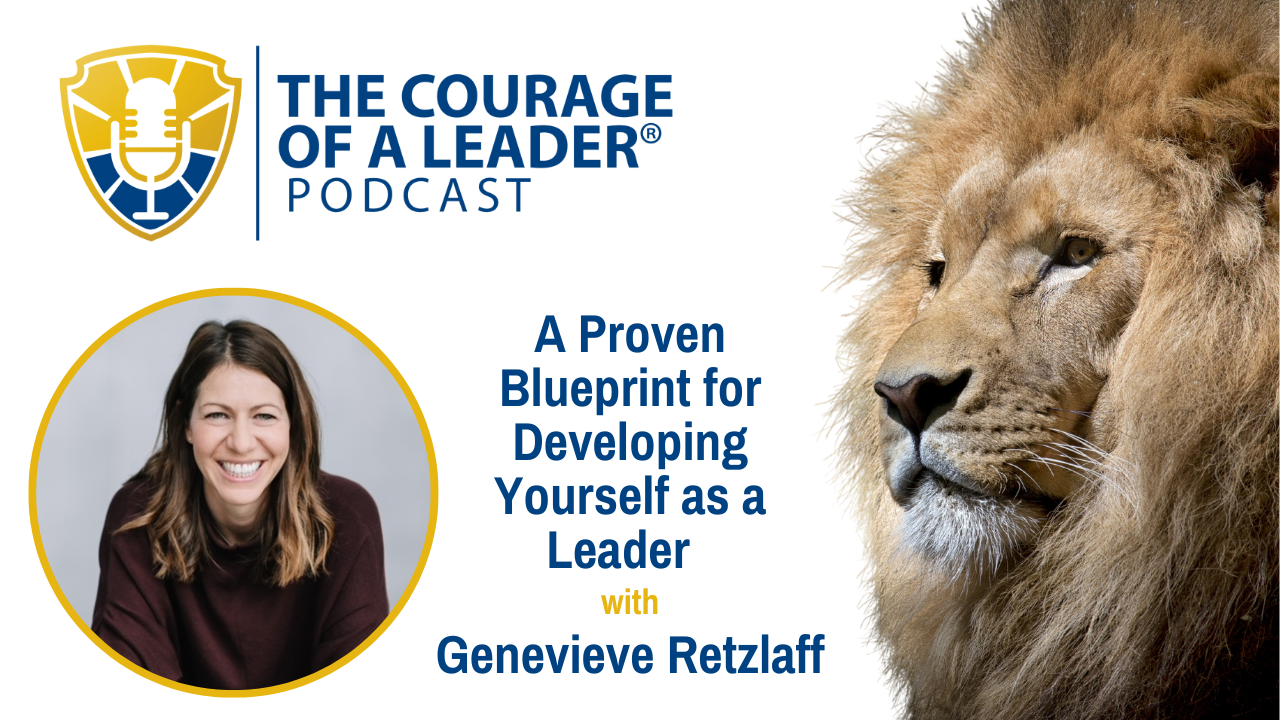
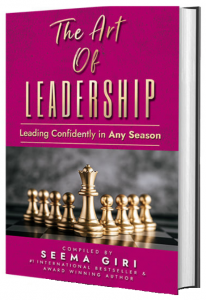
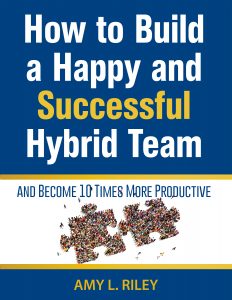
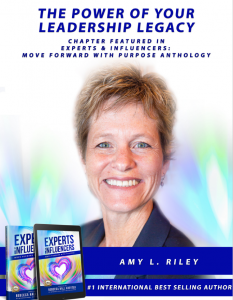

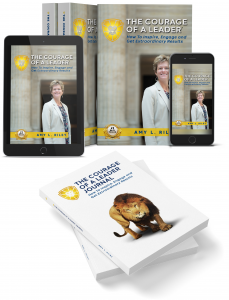
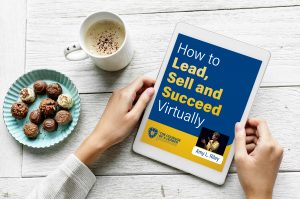
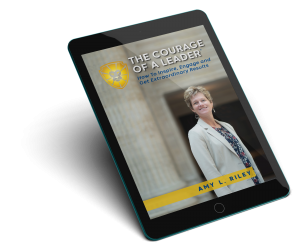
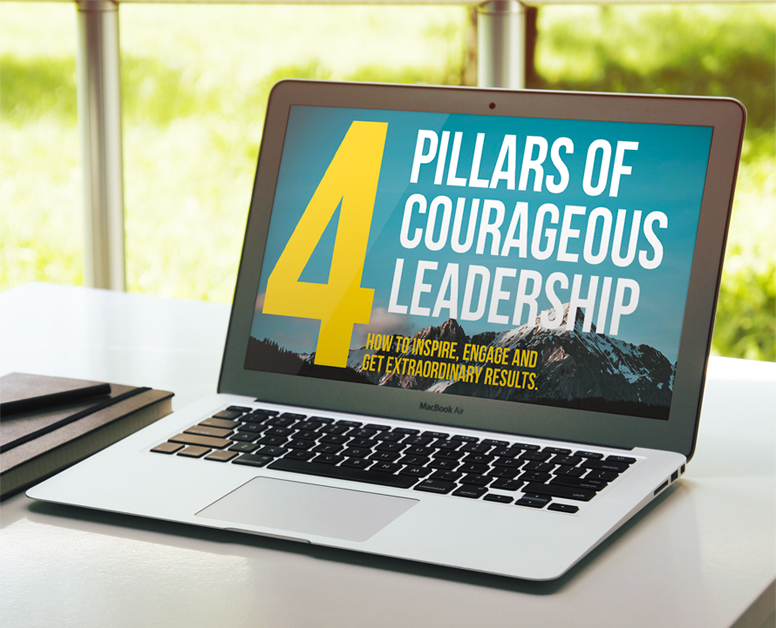 A Summary of The Courage of a Leader® 4 Pillars
A Summary of The Courage of a Leader® 4 Pillars